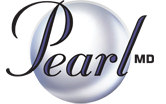How to Boost Immunity to Pandemic Proof your Health
As we prepare to welcome in the new year, Ontarians like many others around the world will do so amidst lockdowns and tight restrictions aimed to dampen the flames of the fierce Second Wave of COVID-19. Despite the extraordinary news of the approval of two COVID-19 vaccines, Canadians are gearing up for a long, dark winter. Even in the best of times, the falling temperatures, dark days and more time indoors can adversely affect our immunity. Adding to these environmental seasonal risks, lifestyle factors like a poor diet or lack of sleep, will not only increase the risk of infection but also potentially reduce the immune response to a vaccine. With news of more infectious variants of COVID-19 emerging in countries like the UK and South Africa, it is critical that we double down our efforts to boost immunity to protect from potential infection but also to maximize our immune response when we eventually are vaccinated. The following top ten health hacks and tips may help boost immunity and pandemic proof our health.- Mind the measures: masks, physical distancing and hand washing are critical steps that are highly effective in reducing transmission of COVID-19. A 3 layered mask that is well fitted to the face and tightly covers the nose and mouth protects both the wearer and others in close contact. Mask wearing when indoors and especially in spaces with poor ventilation will greatly reduce transmission. Measures like mask wearing and distancing are likely here to stay despite vaccination as it will be many months until we have established herd immunity through vaccination when over 65-70% of the population as been successfully vaccinated with two doses.
- Sleep tight: Set a consistent bedtime and ensure you are getting enough sleep for optimal immune function. Adequate sleep duration and quality is critical for immune health. Insomnia or inadequate sleep has been associated with an increased risk of respiratory infection. A poor night sleep has also been shown to compromise the immune response to a vaccine administered the following day. Improving sleep takes a concerted effort. Developing a consistent sleep routine can help to synchronize your circadian rhythm allowing optimal secretion of melatonin, a hormone released from the pineal gland which sets our bedtime clock. Melatonin itself plays a role in supporting optimal immune health, mood and resiliency in the face of psychological stress. Sleep tips for a good night of restorative zzz’s include dimming the lights 1-2 hours before bedtime and avoiding eating and drinking during this time. Try tucking away the mobile phone and other technology and instead engage in a calming activity, like a warm bath, as part of a bedtime ritual. Brew a sleepy time tea (like Tulsi tea) and consider adding a bedtime supplement like Sleep Well (containing melatonin, L-theanine and magnesium glycinate) to naturally increase sleepiness.
- Stress less: Adopt a stress management system to keep daily life stressors at bay. While there is no magic bullet to eliminate stress, integrating stress reducing techniques like mindfulness, meditation and deep breathing can help you better cope. High perceived stress levels are associated with reduced immunity and increased risk of infection and disease. A long nature walk works well for both fresh air and mental clarity. At a time when access to mental health resources and psychological care is extremely limited, self-guided meditation apps can be particularly useful. MUSE is a brain sensing head set that connects to a guided meditation app that uses visualization and positive reward psychology to train your stress response system. We offer a demonstration as part of our Virtual Care platform and integrate ind-body technology like MUSE into our approach.
- Clear the passage: Small hair-like projections on the inner lining of the nose, called cilia, provide a first line defense against air-borne pathogens. These cilia can be irreversibly damaged by cigarette smoking as well as dust and pollution. For some, chronic congestion of the facial sinuses and nose may require additional drainage efforts throughout wintertime flu season to prevent acute on chronic problems. Sinus rinses and nasal sprays are available without a prescription and work by flushing out and hydrating the sinuses and nasal cavities to reduce infection. In fact, mask wearing has been shown to keep the nasal passages better hydrated which may provide an indirect additional protective mechanism to reduce susceptibility to COVID-19 and other airborne pathogens.
- Eat your Colours: Eating a highly processed diet void of key minerals and vitamins can lead to deficiencies that may impair your immune function. In fact, human health is dependent on acquiring these micro-nutrients and other anti-oxidants from the food we eat. The bright colours of our fruit and vegetables arise from a rich supply of additional phytonutrients, like carotenoids and flavonoids, that can help boost our immunity when ingested. When preparing your menu, try to create a food colour wheel with orange and red fruits and vegetables for vitamin C (carrots, papayas, bell peppers), purple and blue foods for quercetin and other bioflavonoids (blueberries, red grapes and beets) and deep green vegetables for powerful detoxifying anti-oxidants. One critical immune boosting vitamin, vitamin D3, is not adequately available in the diet and must be supplements. Especially in the wintertime, daily doses of 2000-4000 IU are recommended and can be titrated to your personal needs by targeted testing.
- Drink your Detox: Like vitamin D3 not all immune boosters can be found in our fruits and vegetables. Instead, we can dose up on detoxifying anti-inflammatory nutrients in soups and teas. Warm bone broth is a good source of the potent anti-oxidant L-glutathione and healing teas can be made seeping anti-inflammatory herbs like turmeric and ginger with or without green tea leaves. For a delicious healing homemade brew you can try my healing ginger tea (recipe here). Detoxifying nutrients like L-glutathione, N-Actyl Cysteine, Turmeric and Milk Thistle can be found in our Detox, a perfect addition to your health armamentarium.
- Smart Supplements: While a colourful diet may be the foundation of good health, the fork may not always be enough. Several immune boosting nutrients are not readily available in the diet and to achieve the right dose and form, dietary supplements should be considered. The key health supplements to boost immunity are: vitamin D3 (1-3000IU daily), vitamin C (500-2000mg daily), Zinc (25-50mg daily), and omega 3 (DHA 500-1200mg). Several herbal extracts have been shown to have anti-microbial and immune bolstering effects and can be added especially if symptoms arise. These include elderberry (Sambucus), ginseng, and astragalus. These herbal healing nutrients arise from ancient Chinese, Ayurvedian and Native American medicine and are included in our Immune Support health supplement.
- Get Moving: Regular aerobic exercise can help to improve circulation and lymphatic drainage lowering risk of infection. Although lock down measures have forced gyms to close, you can still stay fit and keep active on your own with little or no equipment. Bundle up for a brisk outdoor walk, take up a winter sport like snow showing our cross country skiing or try one of the many on demand workouts online. A combination of moderate aerobic activity and resistance and flexibility work outs is best. But avoid works out that are too long or too vigorous as this type of exercise can suppress immune function.
- Vaccinate: With two COVID-19 vaccines now approved in Canada, we can anticipate having access to at least our first dose in the early part of 2021. Within 21 days of just one dose of either mRNA vaccine, it is estimated that over 90% immunity may be achieved. While the second dose is likely required for lasting immune protection, we can expect the early roll out to provide some degree of immunity for those vaccinated. In addition to the COVID-19 vaccine, the annual flu vaccine is highly recommended this year as well as the pneumococcal vaccine (to protect against bacterial pneumonia) for those at high risk or over the age of 65 years.
- Stay connected: Despite the need to physically distance outside of your household contacts, we can virtually stay connected to friends and loved ones. Especially at this time of year, strengthening our sense of community is a powerful way to beat off the winter blues.




